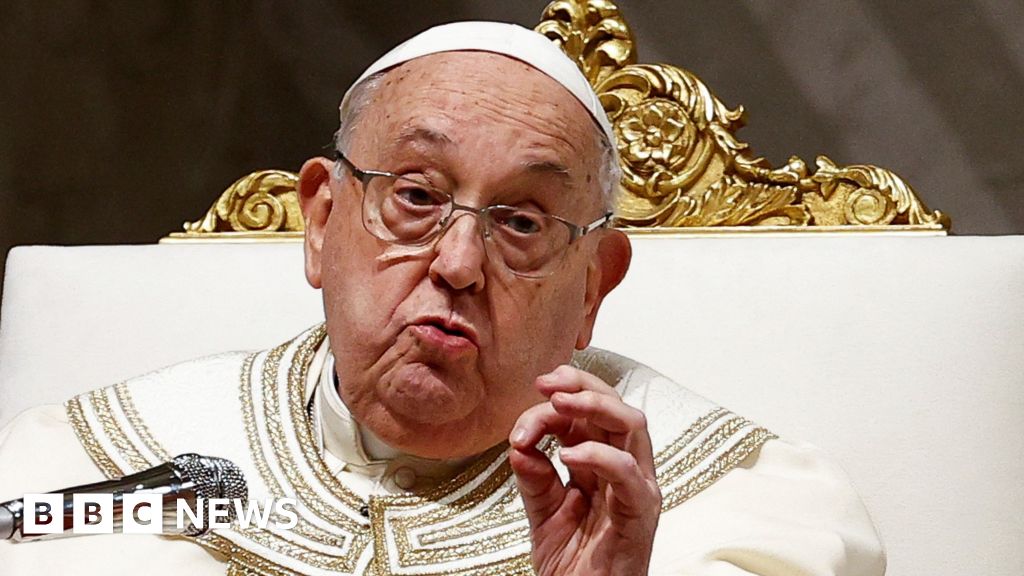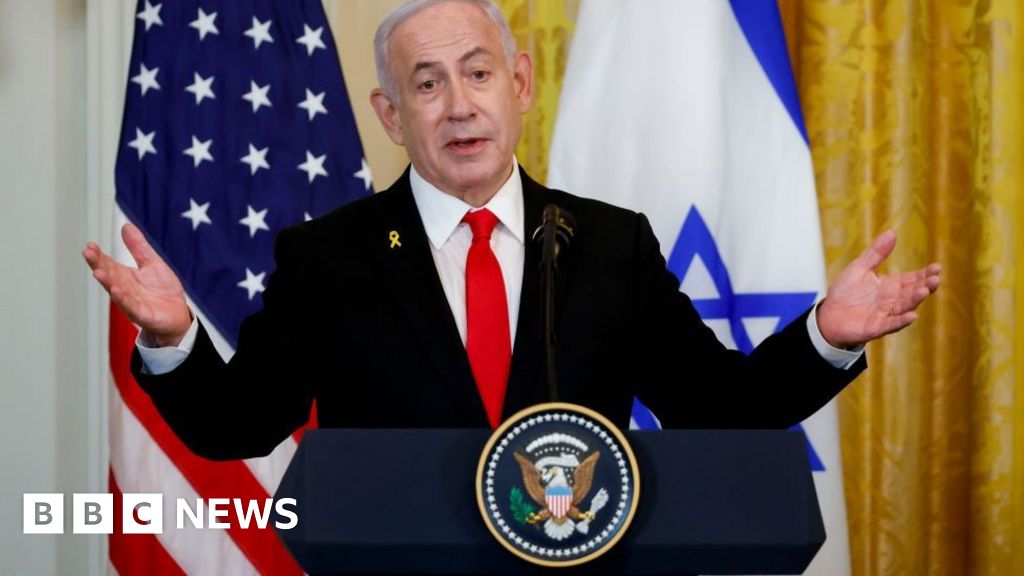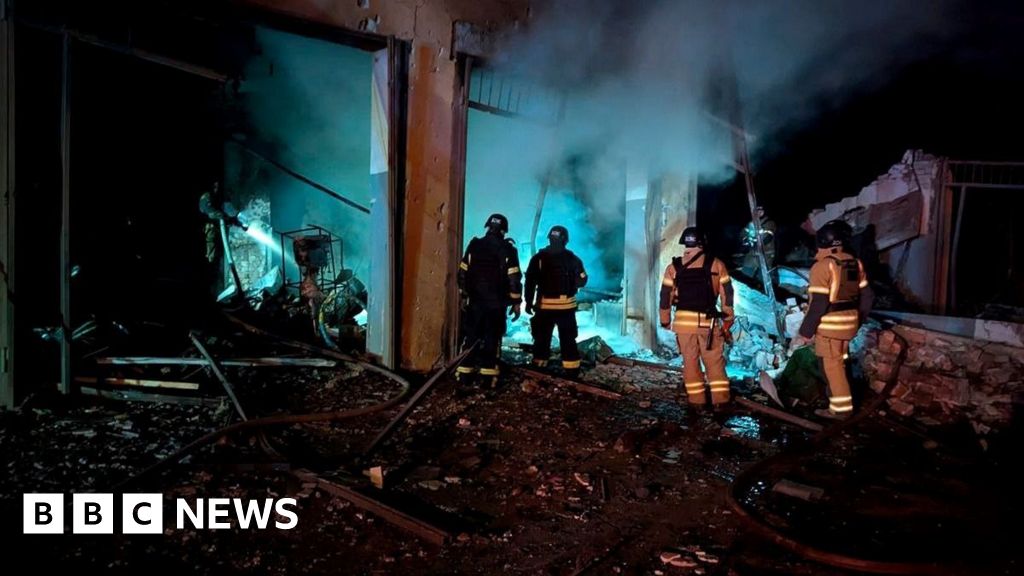ARTICLE AD BOX
image sourceEPA
image captionState media photos of the midnight parade showed workers in hazmat suitsNorth Korea has held a military parade to mark the communist state's 73rd founding anniversary, but did not display any major ballistic missiles.
State media photos of the night-time parade showed marching soldiers and workers in hazmat suits instead.
Leader Kim Jong-un, who looked visibly slimmer, was seen among the unmasked crowds hugging children.
North Korea is suffering from food shortages and a deepening economic crisis due to the pandemic.
On Thursday, state media released images of fire trucks, tractors, and fireworks at the parade.
One section of the parade marched in what appeared to be bright red hazmat suits and gas masks, which may be a sign that a special force has been created to help prevent the spread of Covid-19, according to our correspondent.
North Korea's parades serve two functions.
On some occasions they can be a way to show off new military hardware and ballistic missiles to the outside world in defiance of international sanctions.
But most are a means of shoring up domestic support, especially in difficult times. It is a way to boost morale and encourage the crowds to watch the mass displays of strength and cheer them up with fireworks, even if in some parts of the country they have empty stomachs.
The special red Hazmat unit is especially curious and would suggest Pyongyang is keen to show its people that even as the country claims it has no cases of the virus, the constant battle against the spread of Covid-19 goes on.
Pyongyang has held three parades in the space of twelve months - unusually frequent even for North Korea.
Just think of the risk of gathering the masses of unmasked crowds in the capital during a pandemic in a country which has yet to receive any vaccines.
For whatever reason, Kim Jong Un must be making the calculation that the risk is worth it.
Chinese President Xi Jinping sent a congratulatory message to Mr Kim, according to Chinese state media.
image sourceReuters
image captionThe military parade was held at Kim Il Sung square in PyongyangChina is North Korea's staunchest political and economic ally, and North Korea depends on its neighbour for food, fertiliser and fuel.
But trade between the two countries has plummeted since North Korea shut its borders in January 2020 to keep out Covid-19. Separately, Pyongyang also declined three million vaccine doses from China.
As of 19 August, North Korea had recorded no cases of Covid-19, the World Health Organization (WHO) says - though critics say this is unlikely.
Some 37,291 people - including health care workers and those with flu-like illnesses - had been tested and all were found to be negative, the WHO had said in its weekly situation report.
However, Mr Kim has acknowledged that the country was facing a food shortage, amid reports from aid organisations of people starving to death and a teetering economy.
But its nuclear plans have not been curtailed. Last month the UN atomic agency said that the country appeared to have restarted a reactor which could produce plutonium for nuclear weapons, calling it a "deeply troubling" development.

 3 years ago
42
3 years ago
42








 English (US) ·
English (US) ·